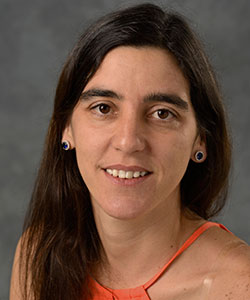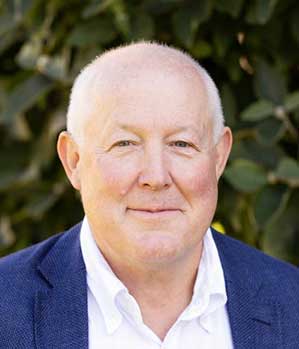Fall 2023 Seminars

THURSDAY, SEPTEMBER 28 2023 | 3:30 p.m C102 Patenge, Zoom
Ugochinyere Vivian Ukah, PhD, MPH
Assistant research investigator
Health Partners Institute
"Identifying women and children at high-risk of chronic diseases using pregnancy complications"
Pregnancy complications, such as hypertensive disorders of pregnancy and other severe maternal morbidity, disproportionately affect Black and Hispanic women and other vulnerable populations and can result in serious short-term health outcomes for both mother (e.g., eclampsia and stroke), and child (e.g., stillbirth, and preterm delivery), as well as long-term outcomes e.g., increased risk of cardiovascular disease in women. Pregnancy may therefore serve as a window to identify women and children at high-risk of chronic health outcomes, including Black women, and prevent adverse outcomes through early prediction of risks, clinical surveillance, and effective interventions. In this talk, I highlight my studies on the prediction of adverse maternal outcomes and identifying long-term health risks after pregnancy complications, using epidemiological methods and large datasets.

THURSDAY, OCTOBER 12 2023 | 3:30 p.m E4 Fee Hall, Zoom
Arkaprabha Ganguli
Postdoctoral Appointee
Argonne National Laboratory
"Deep Learning-Aided Feature Selection for Cognitive Reserve with Highly Correlated Diffusion-MRI Tractography Data"
Evidence from studies of dementia shows that some older adults continue to maintain their cognitive abilities despite signs of ongoing neuropathological diseases. Commonly referred to as cognitive reserve, this phenomenon has unclear neurobiological substrates and a current understanding of corresponding markers is lacking. This study aims at investigating the immense system of structural connections between brain regions constituting subcortical white matter (WM) as potential markers of cognitive reserve. Diffusion MRI tractography is an established computational neuroimaging method to model WM fiber organization throughout the brain. Standard statistical analyses capable of leveraging the high dimensionality of tractography data face additional methodological complications beyond those encountered in typical feature selection problems. We propose a flexible feature selection algorithm in the context of highly correlated high-dimensional predictors, a well-known challenge for traditional variable selection algorithms. Specifically, we adopt a screening and cleaning strategy that relies on deep learning for cluster-level discovery with a controlled error rate. Extensive simulation studies demonstrate a substantial gain in power with minimal false discoveries, compared with state-of-the-art methods for feature selection. Our application to predicting cognitive reserve in a clinical aging neuroimaging tractography dataset produces anatomically meaningful discoveries in brain regions associated with risk and resilience to neurodegeneration.

THURSDAY, OCTOBER 26 2023 | 3:30 p.m C102 Patenge, Zoom
Richard Reynolds, PhD
Assistant Professor of Medicine in the Division of Clinical Immunology and Rheumatology
The University of Alabama at Birmingham
"Candidate genes for gout and serum urate: diving deeper"
Recent GWAS for gout and serum urate have identified hundreds of candidate genes. Some top candidates will be described in detail. Current methods and results from our lab for exploring candidate gene expression and its regulation in immune cells will be presented. The research is producing many new questions and creating avenues for identification of targets for therapy.

THURSDAY, NOVEMBER 9 2023 | 3:30 p.m E4 Fee Hall
In-person only. No Zoom or recording
Ana Vazquez, PhD
Associate Professor of Epidemiology and Biostatistics
Department of Epidemiology and Biostatistics
Michigan State University
"The genetics of the response to an aerobic exercise intervention"
Prolonged positive energy balance results in excess bodyweight. The main causes of a positive energy balance depend on life style, including excessive caloric intake and low physical activity. In this project we use The Training Interventions and Genetics of Exercise Response (TIGER) study (N=3,586 participants). The TIGER study is an intense aerobic exercise intervention in young adults. We will explore results of this exercise intervention in terms of exercise training, dietary choices, body composition, and the role of genomics and metabolomics.

THURSDAY, DECEMBER 7 2023 | 1:30 p.m Patenge, Zoom
Terry Hartig, PhD
Professor at Department of Psychology, Clinical Psychology
Uppsala University, Sweden
This seminar will be on green space and health, jointly hosted with MSU Dept of Public Health
“What nature? Whose nature? Our nature?”
“Nature” has diverse meanings, each with its referents. Those working in environmental psychology and allied fields favor some of those meanings, using them and attending to their referents in particular ways. Other meanings have less favor, despite their relevance, and their referents receive relatively little attention. I will consider some meanings of “nature” and some problems that their use or neglect has had for environment-behavior-design research. Those problems involve forms of insensitivity or blindness – to some ubiquitous and behaviorally influential natural phenomena, to historical and cultural contingencies of restorative benefits of nature experience, and to limitations of the evolutionary assumptions commonly invoked in discussions of such benefits. Awareness of these problems will support further development in theory and methods used in the psychological study of human-nature relations.

